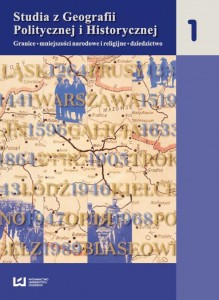Language question in the history. An outline
DOI:
https://doi.org/10.18778/2300-0562.01.05Keywords:
language, language policy, language situation, language conflicts, national language, regional language, immigrant languageAbstract
Language question consists in debates over language situation, i.e. position of individual languages in a territory (language status), or over their corpus, or over their classification as belonging to a larger linguistic category (group/family) which sometimes is politically tainted. It appears when there is a competition between languages or between concepts of language policy. In Europe it emerged first in early middle ages in the Christian Church over the role of local languages in liturgy which was one of causes of the split into Western and Eastern Christianity. It occurred again during the reformation being a cause of the split into Catholicism and Protestantism. Language question was the most intense since mid-18th until mid 20th century parallel to the idea of nation state and imperialism. It led to disintegration of multiethnic states and imposition of the model of monolingual states, the latter consisting in downgrading “dialects” and assimilation of linguistic minorities. This model was largely followed by non-European states. In the second half of the 20th century a more liberal stance in Western Europe dominated in relation to regional, minority and immigrant languages. In recent years in some European countries there is a return to the language policy of assimilation of ethnic minorities and immigrants, and language policy is used as a barrier to inflow of undesirable migrants. At the same time institutionalization of the European integration raised the language question at the EU level.
References
Burke P., 2009, Języki i społeczności w Europie wczesnonowoczesnej, Wydawnictwo UJ, Kraków.
Google Scholar
Diaz-Couder, E., 1997, Multilingüismo y Estado-Nación en México „Diverscité” Janvier: www.teluq.uquebec.ca/diverscite/entree.htm
Google Scholar
Fedoruk O., 2003, Ukajinśko-pol’śki widnosyny y percepciji Pantelejmona Kulisza (Kontekst hałyćkoho suspil’no-literaturnoho procesu 60-ch rr. XIX st), „Ukrajina Moderna”, 8, s. 73–106.
Google Scholar
Fernández Retamar R., 1979, Nuestra América y Occidente (w zbiorze: Calibán y otros ensayos), Editorial Arte y Literatura, La Habana.
Google Scholar
Gelber H.G., 2001, Nations out of Empires. European Nationalism and Transformation of Asia, Palgrave Macmillan, Basingstoke–New York.
Google Scholar
DOI: https://doi.org/10.1057/9780230288645
Grodecki R., 1945, Powstanie polskiej świadomości narodowej, Katowice.
Google Scholar
Hlibowicka-Węglarz B. 2003, Język portugalski w świecie. Wczoraj i dziś, Wydawnictwo UMCS, Lublin.
Google Scholar
Judge A., 2007, Linguitic Policies and Survival of Regional Languages in France and Britain, Palgrave Macmillan, Basingstoke.
Google Scholar
DOI: https://doi.org/10.1057/9780230286177
Kraus J, 1996, Jazyk Čechů v proměnách od dánověku do národního obrození, [w:] Čeština, jak ji znáte i neznáte, Academia, Praha.
Google Scholar
Łada A., 2011, Patent na Prezydencję?, „Gazeta Wyborcza”, 8.03.2011.
Google Scholar
Łuczak J., 2010, Polityka językowa Unii Europejskiej, Oficyna Wydawnicza ASPAR-JR, Warszawa”.
Google Scholar
Macan T., 2004, Hrvatska povijest, Matica hrvatska, Zagreb.
Google Scholar
Mańczak W., 2002, O pochodzeniu i dialekcie Kaszubów, Oficyna Czec, Gdańsk.
Google Scholar
Merkel erklärt “Multikulti” für gescheitert, 2010, „Frankfurter Allgemeine Zeitung”, 16.10.2010.
Google Scholar
Multiculturalism has failed us: it’s time for muscular liberalism, says Cameron, 2011, „The Times”, 5.02.2011.
Google Scholar
Ostler N., 2006, Empires of the Word. A Language History of the World, Harper Perennial, London–New York–Toronto–Sydney.
Google Scholar
Ostler N., 2010, The Last Lingua Franca. English Until the Return of Babel, Allen Lane & Walker Publishing Company, London–New York.
Google Scholar
Pellicer D., 1997, Reconomimiento y conocimiento de las lenguas indígenas de México „Diverscité” Fevrier: www.teluq.uquebec.ca/diverscite/entree.htm
Google Scholar
Sławski F., 1988, Języki słowiańskie, [w:] Bednarczuk L. (red.), Języki indoeuropejskie, t. 2, PWN, Warszawa.
Google Scholar
Swenden W., 2006, Federalism and Regionalism in Western Europe. A Comparative and Thematic Analysis, Palgrave Macmillan, Basingstoke.
Google Scholar
DOI: https://doi.org/10.1057/9780230624979
Szul R., 2009, Język, naród, państwo. Język jako zjawisko polityczne, PWN, Warszawa.
Google Scholar
Šoltés P., 2004, Na východ od Tatier, na západ od Užhododu, „Na východ od Aše”, 3: www.navychod.cz
Google Scholar
Thiessová A.-M., 2007, Vytváření národních identitet v Evropě 18. až 20 století, Centrum pro studium demokracie a kultury, Brno.
Google Scholar
Tołstoj N.I., 1988, История и структура славянских литературных языков (Istorija i struktura sławianskich literaturnych jazykow), Nauka, Moskwa.
Google Scholar
Truchot C. 2008, Europe: l’enjeu linguistique, La Documentation Française, Paris.
Google Scholar
„Un brevet unique permettra à l’Union Européenne d’être plus compétitive” Entretien avec le professeur Alain Pompidou, 2011, „Entretien d’Europe”, 55, 26 avril, www.robert-schuman.eu/entretien_europe.php?num=55
Google Scholar
Urbańczyk S., 1979, Prace z dziejów języka polskiego, Ossolineum, Wrocław.
Google Scholar
Wright S., 2004, Language Policy and Language Planning. From Nationalism to Globalisation, Palgrave Macmillan, Basingstoke.
Google Scholar
Żelazny W., 2000, Francja wobec mniejszości narodowych. Etniczność, etnopolityka, etnosocjologia, Wyższa Szkoła Społeczno-Gospodarcza w Tyczynie, Tyczyn.
Google Scholar
Downloads
Published
How to Cite
Issue
Section
License

This work is licensed under a Creative Commons Attribution-NonCommercial-NoDerivatives 4.0 International License.








